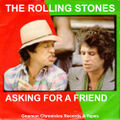Template:Selected anniversaries/January 15: Difference between revisions
No edit summary |
No edit summary |
||
| Line 1: | Line 1: | ||
<gallery> | <gallery> | ||
File:Paolo Sarpi.jpg|link=Paolo Sarpi (nonfiction)|1623: Statesman, scientist, and historian [[Paolo Sarpi (nonfiction)|Paolo Sarpi]] dies. He was a proponent of the Copernican system, a friend and patron of Galileo Galilei, and a keen follower of the latest research on anatomy, astronomy, and ballistics at the University of Padua. | File:Paolo Sarpi.jpg|link=Paolo Sarpi (nonfiction)|1623: Statesman, scientist, and historian [[Paolo Sarpi (nonfiction)|Paolo Sarpi]] dies. He was a proponent of the Copernican system, a friend and patron of Galileo Galilei, and a keen follower of the latest research on anatomy, astronomy, and ballistics at the University of Padua. | ||
| Line 85: | Line 83: | ||
||2001: Leo Marks dies ... cryptographer, playwright, and screenwriter. Pic. | ||2001: Leo Marks dies ... cryptographer, playwright, and screenwriter. Pic. | ||
||2005: ESA's SMART-1 lunar orbiter discovers elements such as calcium, aluminum, silicon, iron, and other surface elements on the Moon. | ||2005: ESA's SMART-1 lunar orbiter discovers elements such as calcium, aluminum, silicon, iron, and other surface elements on the Moon. | ||
| Line 100: | Line 96: | ||
||2014: John Dobson dies ... astronomer and author .. best known for the Dobsonian telescope, a portable, low-cost Newtonian reflector telescope; also known for his efforts to promote awareness of astronomy (and his unorthodox views of physical cosmology) through public lectures including his performances of "sidewalk astronomy." Pic. | ||2014: John Dobson dies ... astronomer and author .. best known for the Dobsonian telescope, a portable, low-cost Newtonian reflector telescope; also known for his efforts to promote awareness of astronomy (and his unorthodox views of physical cosmology) through public lectures including his performances of "sidewalk astronomy." Pic. | ||
</gallery> | </gallery> | ||
Latest revision as of 19:04, 7 February 2022
1623: Statesman, scientist, and historian Paolo Sarpi dies. He was a proponent of the Copernican system, a friend and patron of Galileo Galilei, and a keen follower of the latest research on anatomy, astronomy, and ballistics at the University of Padua.
1818: A paper by British physicist David Brewster is read to the Royal Society, belatedly announcing his discovery of what we now call the biaxial class of doubly-refracting crystals.
1850: Mathematician and physicist Sofia Kovalevskaya born. Kovalevskaya will contribute to analysis, partial differential equations, and mechanics.
1896: Photographer and journalist Mathew Brady dies. He was one of the first American photographers, best known for his scenes of the Civil War.
1905: Physicist and academic John D. Strong born. Strong will contribute to optical physics: he will be the first to detect water vapor in the atmosphere of Venus, and he will develop optical devices and materials including improved telescope mirrors and anti-reflective coatings.
1908: Theoretical physicist and academic Edward Teller born. He will be known colloquially as "the father of the hydrogen bomb", although he will not care for the epithet.
1945: Mathematician Wilhelm Wirtinger dies. He contributed to complex analysis, geometry, algebra, number theory, Lie groups and knot theory.
1981: English rock band the Rolling Stones performs an early version of their song "Asking for a Friend".
2006: A capsule of dust samples collected by the spacecraft Stardust returns to Earth.









